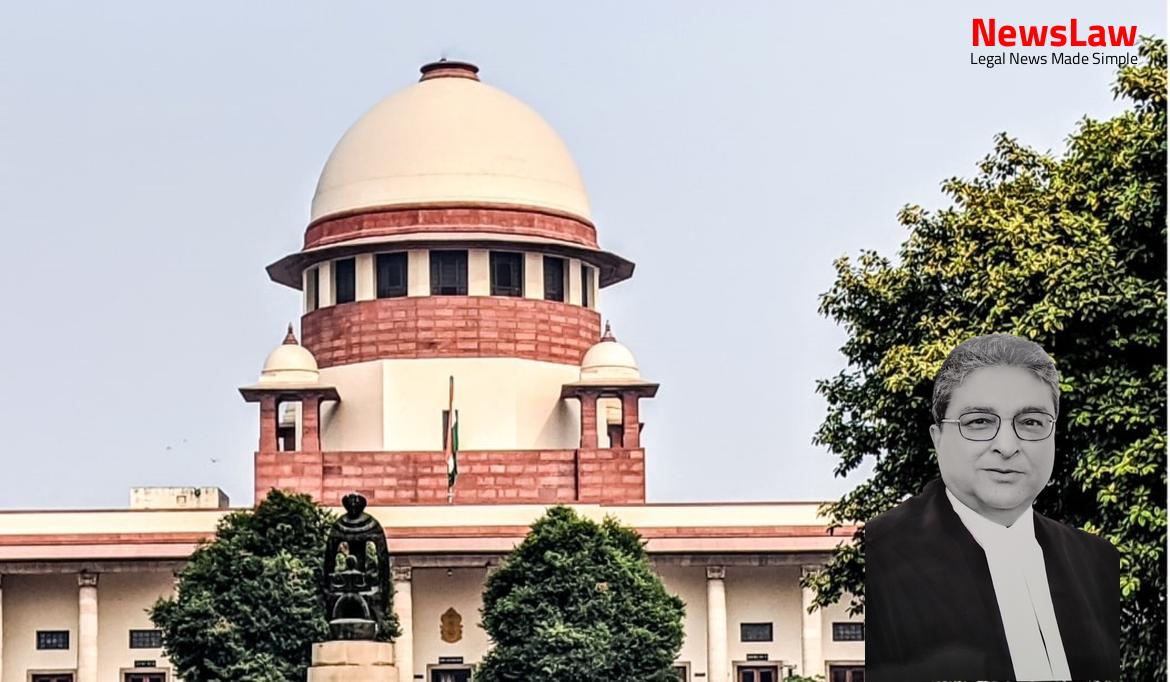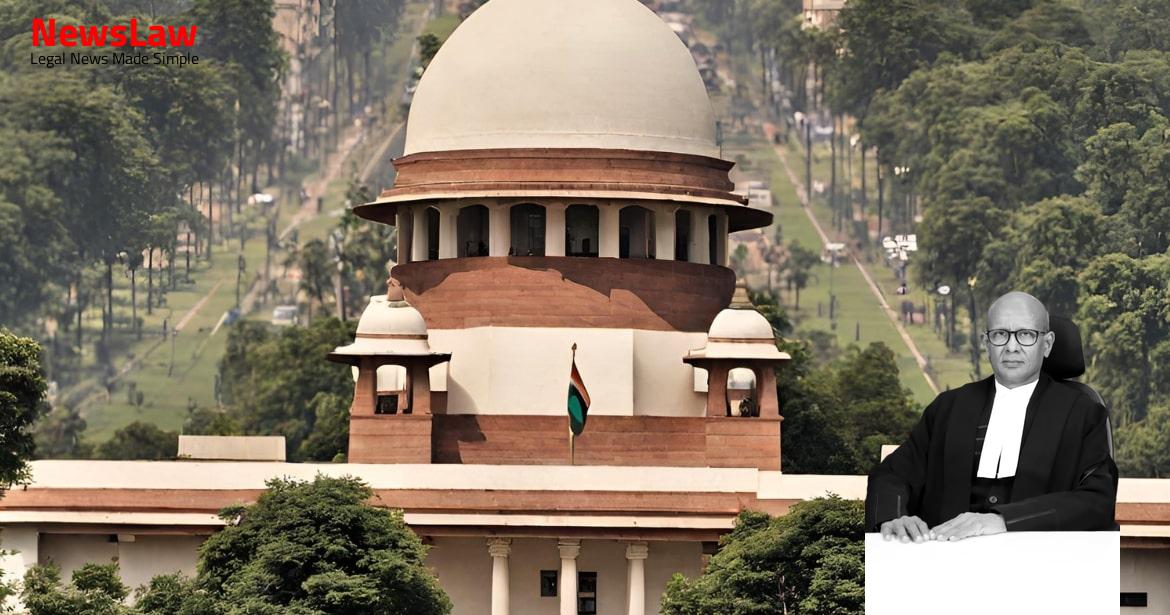In a crucial legal analysis, the court upheld the validity of the MACP Scheme, shedding light on the financial upgradations provided to employees. The court’s decision clarifies the nuances of the scheme, setting precedent on how financial advancements are determined within the hierarchical structure. This analysis offers insights into the legal framework governing employee benefits and incentivization within governmental departments.
Facts
- The Modified Assured Career Progression Scheme (MACP) is in effect from 1 January 2006, as per the Central Civil Service (Revised Pay) Rules, 2008 or from 1 September 2008 as per the O.M. dated 19 May 2009.
- Financial upgradation under MACP is personal and does not require a new post or actual functional promotion.
- MACP does not affect seniority or reservation principles.
- Employees who have not received actual or functional promotion are eligible for financial upgradation under MACP.
- Under MACP, financial upgradation is equivalent to the pay scale/grade pay of the next promotional post in the hierarchy or the immediate next grade pay in the hierarchy of the pay bands.
- Central Armed Police Forces personnel are entitled to financial upgradation under MACP even if they were unable to fulfill pre-promotional norms for administrative reasons.
- The MACP Scheme is different from the Assured Career Progression Scheme (ACP), aimed at providing financial upgradation to employees who have been stagnant in terms of promotional opportunities.
- The Sixth Central Pay Commission recommended changes to the ACP Scheme to address inter-departmental disparities.
- The MACP Scheme was implemented to provide identical financial benefits to all employees, regardless of hierarchical structure.
- Under the MACP Scheme, employees receive three financial upgradations at regular intervals of 10, 20, and 30 years.
- The MACP Scheme aims to incentivize employees to work efficiently even without promotions.
Also Read: Analysis of Bail Conditions in Criminal Appeal No. INSC 48/2024
Arguments
- The contention of the appellant is that a policy decision was taken to implement the recommendation of the 5th Pay Commission for revised scales of pay and dearness allowance from specific dates.
- The Sixth Central Pay Commission’s recommendations were accepted based on careful consideration after examining disparities and employee representations.
- Financial upgradation under the MACP Scheme was not considered hostile discrimination.
- The court, while reviewing the validity challenge, does not substitute its views on policy choices made.
- In fiscal matters, various factors like financial position and capacity to bear additional liability are crucial, and courts tread carefully to avoid serious financial implications.
- The ACP and MACP Schemes were viewed as incentive schemes, not part of the pay structure, with specific implementation dates and number of financial upgradations.
- The judgment in M.V. Mohanan Nair was upheld as conclusive, and there was no need to refer the matter to a larger Bench or reconsider previous decisions.
- The respondents were not allowed to cherry-pick beneficial features of different schemes for their advantage.
- The court rejected the idea of reopening past cases due to differences in pay scales under old and new schemes.
- Interference with well-deliberated expert decisions is avoided unless there is a violation of law or fundamental rights.
- The MACP Scheme was considered rational and well-considered, providing relief against stagnation.
- Government decisions based on expert recommendations should be respected by the courts, and policies should not be substituted without valid reasons.
- The MACP Scheme differed from the ACP Scheme in terms of the number of financial upgradations and periods specified.
- The claim for financial upgradation to the grade pay of the promotional hierarchy was rejected, as the MACP Scheme operated on its own terms from its implementation date.
- Overall, the court upheld the MACP Scheme as valid and conclusive in providing financial upgradations to employees.
- The learned Additional Solicitor General argued that revising financial upgradation granted to civilian officers by implementing MACPS from 1-1-2006 would be detrimental as huge amounts of money would have to be recovered.
- The respondent and similarly situated persons cannot seek applicability of MACPS from 1-1-2006.
- The financial upgradation under MACPS is in the higher grade pay in the same pay band, unlike the ACP Scheme which was to the next grade pay of the promotional post.
- The Union of India has agreed to accept the directions given by the Delhi High Court in the case of Ram Avtar Sharma v. Director General of Border Security Force.
- A liberal, pragmatic, and ameliorative approach is needed to address genuine grievances of personnel who forego participation in pre-promotional courses for the nation.
- The appeals filed by the Union of India are partly allowed, setting aside the judgments that MACP Scheme applies from 1.1.2006 and that employees are entitled to financial upgradation equivalent to the next promotional post.
- MACP Scheme is applicable from 1.9.2008, with entitlement to financial upgradation equivalent to the immediate next grade pay in the hierarchy of pay bands as per the Central Civil Services (Revised Pay) Rules, 2008.
Also Read: Conviction Upheld for Murder and Concealment of Body
Analysis
- Financial upgradations as per the provisions of the earlier ACP Scheme granted till 30.08.2008.
- MACP is considered part of pay, leading to entitlement for MACP from 1-1-2006 as per government resolution.
- Benefit of ACP affects pay and pension, upheld by Armed Forces Tribunal and Supreme Court in previous cases.
- MACPS grants financial upgradations only to next grade pay, not to grade pay of next promotional post.
- Revised pay scales, pay bands, and grade pay implemented from 1 January 2006 as per government resolution.
- MACP Scheme operationalized from 01.09.2008 and affects grade pay of employees.
- MACP Scheme does not have provision for financial upgradations under the scheme.
- MACPS grant after 10, 20, and 30 years of service, contrary to original envisaged service years.
- Resolution does not confer a legal right on government employees.
- Revised allowances effective from 1-9-2008, except dearness allowance which is effective from 1-9-2008.
- Uniform implementation of MACPS from 1-1-2006 would lead to recoveries of excess amounts paid.
- The judgment in M.V. Mohanan Nair clarifies the issue around MACPS implementation.
- Implementation of MACPS from 1-1-2006 could be detrimental, especially for retired employees.
- Benefits from ACP and MACP Schemes are deemed as incentives, not part of pay.
- The judgment in Balbir Singh Turn notes that the Sixth Central Pay Commission proposed the ACP Scheme after 10 and 20 years of service, but the Central Government decided on 8, 16, and 24 years.
- Instructions issued on 30-5-2011 were found to be contradictory to the Resolution of 30-8-2008 which stated that 1-1-2006 was the effective date for the MACPS implementation regarding pay and dearness allowance.
- In the case of M.V. Mohanan Nair, a three-Judge Bench considered ACPS and MACPS as incentive schemes to address stagnation, granting only the next grade pay in the pay band, not the grade pay of the next promotional post to the respondents.
- The judgment in Balbir Singh Turn highlights that on 30 August 2008, the Central Government agreed to the recommendations of the Sixth Central Pay Commission for personnel below officer rank with certain modifications.
- Clause (ix) of the Resolution grants 3 ACP upgradations to PBORs after 8, 16, and 24 years of service.
- Pre-promotional norms for grant of financial upgradation need not be insisted upon for Central Armed Forces personnel unable to attend pre-promotional courses.
- Decision taken in favor of the appellant-Union of India in this regard.
Also Read: 1991 Decree Invalid: No Determination of Rights in Property Dispute
Decision
- All pending applications are disposed of.
Case Title: UNION OF INDIA Vs. EX. HC/GD VIRENDER SINGH (2022 INSC 850)
Case Number: C.A. No.-005545-005545 / 2022



